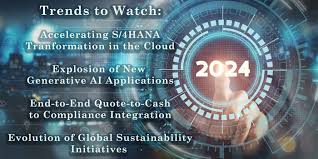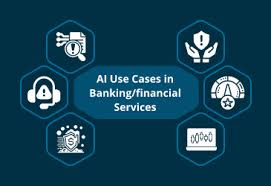The Digital Transformation of Global Financial Organizations: Blockchain, ChatGPT, and AI Technology Trends in 2024
As we move deeper into 2024, the financial world is undergoing a profound transformation driven by the rapid advancement and integration of digital technologies. Blockchain, ChatGPT, and AI are at the forefront of this revolution, reshaping how global financial organizations operate, interact, and innovate. Here's my perspective on the transformative trends shaping the financial sector this year.
Blockchain: The Foundation of Trust and Transparency
Enhanced Security and Transparency: Blockchain technology provides an immutable and transparent ledger, ensuring secure and tamper-proof transactions. This is crucial for maintaining trust in financial systems.
Decentralized Finance (DeFi): DeFi platforms are democratizing access to financial services, enabling peer-to-peer transactions without intermediaries. This reduces costs and increases accessibility for users globally.
Smart Contracts: Automating contract execution with smart contracts ensures that agreements are enforced transparently and efficiently, minimizing the need for manual oversight and reducing the risk of fraud.
Cross-Border Payments: Blockchain is revolutionizing cross-border transactions by reducing the time and cost associated with traditional banking methods. Instantaneous settlements are becoming the norm, enhancing global trade.
Asset Tokenization: The ability to tokenize physical and digital assets on the blockchain is unlocking new investment opportunities and liquidity options, making it easier to trade and manage diverse asset classes.
Regulatory Compliance: Blockchain’s transparent nature aids in regulatory compliance by providing an easily auditable trail of transactions, thus simplifying the process for financial institutions to adhere to regulatory requirements.
ChatGPT: Revolutionizing Customer Interaction
24/7 Customer Support: ChatGPT-powered chatbots provide round-the-clock support, handling customer inquiries and resolving issues in real-time, which significantly enhances customer satisfaction and reduces operational costs.
Personalized Financial Advice: By analyzing customer data, ChatGPT can offer personalized financial advice and product recommendations, helping clients make informed decisions.
Fraud Detection and Prevention: ChatGPT's ability to analyze and understand natural language patterns helps in identifying and preventing fraudulent activities by detecting unusual behavior and alerting the relevant authorities.
Streamlining KYC Processes: ChatGPT can assist in the Know Your Customer (KYC) process by automating data collection and verification, thereby speeding up customer onboarding while ensuring compliance with regulations.
Enhanced User Experience: With natural language processing capabilities, ChatGPT provides a more intuitive and engaging user experience, making interactions with financial platforms more user-friendly and efficient.
Market Analysis and Insights: ChatGPT can analyze vast amounts of data to provide real-time market insights and forecasts, enabling investors and financial analysts to make better-informed decisions.
AI Technology Trends: Driving Innovation and Efficiency
Predictive Analytics: AI algorithms are being used to predict market trends, customer behaviors, and potential risks, allowing financial organizations to be proactive rather than reactive.
Algorithmic Trading: AI-driven trading systems can execute trades at speeds and efficiencies far beyond human capabilities, maximizing returns and minimizing risks in volatile markets.
Risk Management: AI enhances risk management by providing deeper insights into potential threats and vulnerabilities, enabling financial institutions to mitigate risks more effectively.
Operational Efficiency: Automation of routine tasks through AI reduces operational costs and improves efficiency, allowing human resources to focus on more strategic initiatives.
Credit Scoring and Loan Approval: AI is refining credit scoring models by incorporating alternative data sources, leading to more accurate assessments and fairer loan approvals.
Customer Insights and Segmentation: AI analyzes customer data to segment audiences more accurately, allowing for targeted marketing strategies and personalized customer experiences.
Fraud Detection and Cybersecurity: Advanced AI systems detect and respond to fraudulent activities and cyber threats in real-time, providing robust security measures to protect sensitive financial data.
Regulatory Compliance: AI helps in navigating the complex landscape of financial regulations by automating compliance checks and ensuring that all transactions adhere to the necessary legal standards.
The Integrated Future
Interoperability: The integration of blockchain, AI, and ChatGPT creates a seamless and interoperable financial ecosystem. This integration allows for more efficient processes, from customer service to transaction processing and risk management.
Enhanced Data Security: Combining blockchain’s security features with AI’s predictive capabilities and ChatGPT’s interaction prowess results in a more secure and resilient financial infrastructure.
Innovation in Financial Products: The convergence of these technologies is fostering innovation in financial products and services, offering new solutions that cater to evolving customer needs and market demands.
Global Financial Inclusion: These technological advancements are playing a crucial role in promoting financial inclusion, providing underserved populations with access to financial services through more affordable and accessible platforms.
Sustainable Finance: AI and blockchain are aiding in the development of sustainable financial products by providing transparency and traceability in investments, ensuring that funds are allocated to environmentally and socially responsible projects.
Conclusion
The digital transformation driven by blockchain, ChatGPT, and AI is not just a technological evolution but a paradigm shift for global financial organizations. In 2024, these technologies are fundamentally altering how financial institutions operate, interact with customers, and innovate. As we embrace these advancements, the potential for increased efficiency, security, and accessibility in the financial sector is immense. The future of finance is here, and it is digital, decentralized, and driven by intelligent technologies.
Thank you





